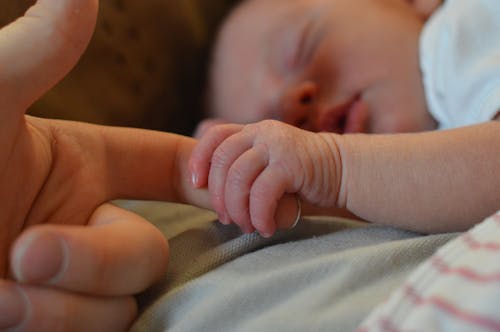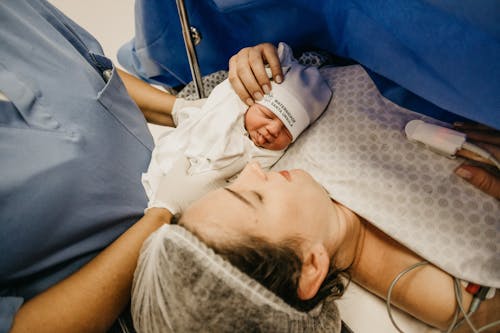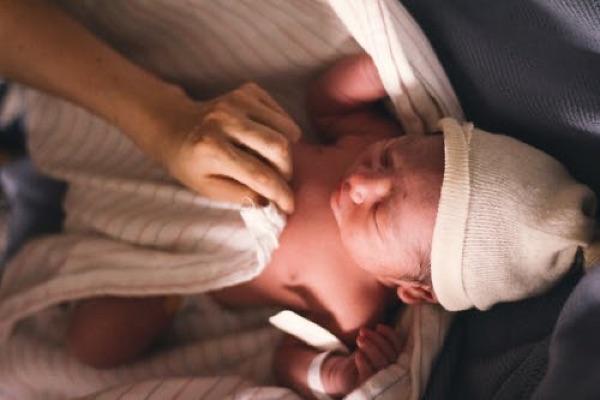Those first few days and hours after giving birth are a blur. You’re sore, emotional, elated and sobbing all at the same time. So much has happened and so much has changed in that short period of time that everything going on around you can feel a little distant, secondary to you and your baby’s primary needs.
So when our baby’s are taken for their physical examination – which usually happens within 72 hours of giving birth – it can be a little frightening to see them in someone else’s arms, even just for a few minutes.
The physical examination is just a screening and a series of tests to find out if your baby has any problems that the doctors need to address. It’s important to flag these early on so they can begin early intervention treatment, but usually these tests come back fine. They look for problems in the eyes, hips, heart and in boys, the testes.

These tests are usually done in the hospital but they can be done by a GP either. Both parents should try to be there after the examination so the doctors can share any information they have with both of you. It may be carried out by your doctor, midwife or trained healthcare professional who will explain what they are doing and what they are looking for.
Your baby may experience a little discomfort, but don’t be distressed as they aren’t feeling any pain during this examination.
Although there is rarely a problem, if there is something that the doctor thinks may be an issue, they will likely refer your baby for further tests. This might not happen straight away, as some conditions take a few weeks to manifest and show themselves properly so they can be diagnosed. Usually doctors will wait until your baby is 6-8 weeks old before screening them again.
This second examination will likely happen in your GP’s office so they can thoroughly examine everything. Again, it’s best if you both attend so you can answer and ask all the questions you want.

Usually, they will want to know things like:
- How your baby is feeding
- How alert they are
- Their general wellbeing
Some of the checks they will perform are:
- Checking baby’s eyes with a torch to see how they move and respond
- Listening to their chest to check their heart sounds
- Examine hip movement to check their joints
- Examine baby boys to see if their testicles have descended into the scrotum
Eyes
When they examine baby’s eyes they are usually looking for cataracts. Cataracts are a clouding of the lens inside the eye and it affects roughly 2-3 children in every 10,000 babies.
Heart
Checking your baby’s heart rate is to see if they have any heart murmurs and can be examined via stethoscope. A heart murmur is where the heartbeat has an extra or unusual sound caused by a disturbed blood flow through the heart. This is not an uncommon heart condition in babies and it is no cause for panic. Mostly doctors are checking for congenital heart disease which affects 8 in 1,000 babies and needs treatment.
Hips
Developmental dysplasia is a condition that occurs when a newborns hip joints haven’t yet formed properly. It is important to treat as they can cause problems later on down the line. 1-2 in 1,000 babies have hip problems that need to be treated.
Testicles
Baby boys are checked to make sure their testicles are in the right place. During pregnancy, the testicles form inside the baby's body. They may not drop down into the scrotum until a few months after birth. Around 2-6 in 100 baby boys have testicles that descend partially or not at all. This needs to be treated to prevent possible problems later in life, such as reduced fertility.
The results
Your healthcare professional will be able to tell you straight away about any problems they may have found and whether or not baby may need to be referred on for more tests. They will record the results and give you an opportunity to ask any questions you may have.
You will be offered regular health and development reviews (health visitor checks) for your baby until they are 2. These are to support you and your baby, and make sure their development is on track.








